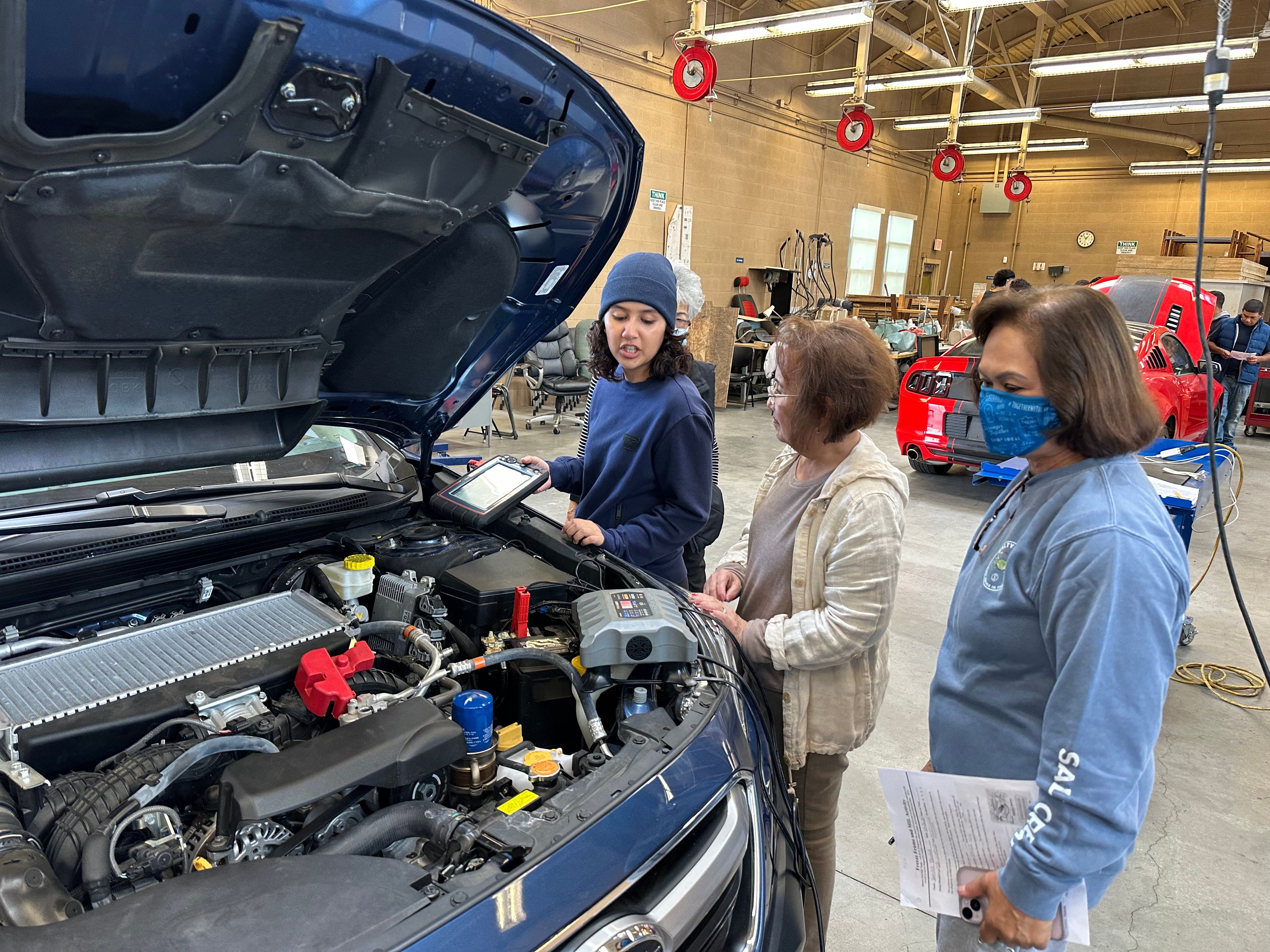Revving Up Equity and Innovation: SDCCE’s Reimagined Automotive Program
Submitted By: Jesus Rivas
San Diego Adult Education Regional Consortium
Website: https://sdcce.edu/job-training/automotive
Type of Practice: Program Development / Curriculum / Classroom
Program Area(s): CTE / Workforce Prep / Pre-apprenticeship
Region: San Diego - Imperial
Consortia Involved: San Diego Adult Education Regional Consortium
The Program of Practice
Following years of declining enrollment, headcount, FTES, and completions—especially exacerbated by the COVID-19 pandemic—the Automotive Program at San Diego College of Continuing Education (SDCCE) faced significant access and equity challenges. Between 2019 and 2024, enrollments dropped by over 46%, FTES fell by more than 39%, and program awards steadily declined, particularly among disproportionately impacted groups such as women, Filipino students, and adults over 50. The program also experienced staffing shortages, with three full-time faculty positions left unfilled, further limiting its capacity to respond to growing workforce demands. These issues created an urgent need to rebuild a robust pathway for students into high-demand, living-wage automotive careers.
The Response
The SDCCE Automotive Department launched a comprehensive revitalization effort to address enrollment, retention, and completion gaps. Key actions included:
• Program Expansion: Courses were made more accessible by increasing class offerings and scheduling flexibility, helping reach working adults and veterans.
• Equity and Inclusion Focus: Special outreach targeted underrepresented populations, contributing to a significant rise in enrollments among female students and Filipino students in 2023–24.
• Instructor Support and Curriculum Modernization: Monthly faculty meetings and the adoption of new instructional tools such as Canvas and Subaru University helped boost teaching quality and student engagement.
• Credential Transparency: Students were informed about the value of course and program awards, with visible support tools and clearer pathways for completion.
• Industry Engagement: The re-launch of the Service Advisor program and creation of a new Green Technology training space aligned the program with emerging workforce trends in EV, ADAS, and hydrogen fuel technologies.
The Unique Features of the Program
What sets this program apart is its rapid and intentional pivot to relevance, equity, and future readiness:
• Green Technology Integration: The program is pioneering a Green Technology curriculum with certificates in EV, ADAS, and fuel cell technologies.
• Veteran-Centered Access: The return of in-person, VA-certified programs specifically supports military-affiliated learners.
• Older Adult Re-engagement: Course award growth among 50+ students surged by over 100%, reflecting program effectiveness in reskilling older workers.
• Equity-Minded Innovation: The department is contributing to the district-wide Advanced Skills Technical Trades & Workforce Development Center initiative, which seeks to combat poverty and racial inequity through Industry 4.0/5.0 certifications and access to cutting-edge automation and manufacturing tools.
The Outcome
The revitalized Automotive Program is showing measurable and meaningful results:
• Enrollment Recovery: After years of decline, enrollment rose by 62% (from 842 in 2022/23 to 1,362 in 2023/24).
• FTES Rebound: FTES increased by nearly 50% year over year.
• Equity Gains: Notably, women increased their course awards from 93 to 215 in one year; the 50+ age group’s awards rose from 104 to 228; and Filipino students nearly matched Latinx students as the largest group earning credentials.
• Program Innovation: The new Green Tech space and revamped curriculum prepare students for emerging careers, strengthening transition pipelines to Miramar College and industry.
• This transformation illustrates a replicable and scalable model for community colleges facing similar enrollment and equity challenges, offering a roadmap for modernizing career education through inclusion, responsiveness, and innovation.

